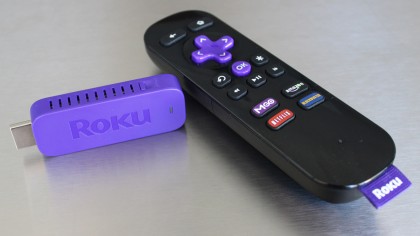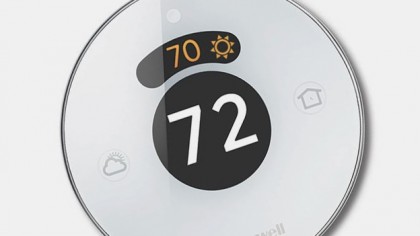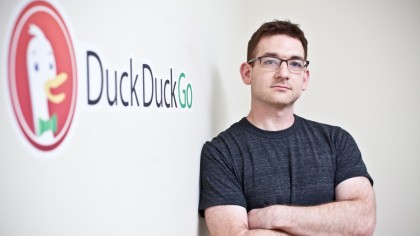Best Google alternatives: the tech you need to live without the Big G
This is what a Google free world looks like

The news that Google is buying Skynet - sorry, Skybox - is just the latest piece of the search giant's world domination plan.
It's in hardware and home automation, wearables and web ads, maps and military robotics, and we're rapidly reaching the point where the list of what Google doesn't do is shorter than the list of the things it does do.
But what if you don't love, like or even trust Google? Is it the Vogon of tech, bellowing RESISTANCE IS USELESS and threatening to recite dreadful poetry? Maybe not but here's steps you can do to get the big G out of your life.
PCs, phones and TVs

The first step to a Google-free world is to bin any Google hardware. That means anything Android as well as Chromebooks, Chromeboxes and Chromecasts and any Google TVs you might have hanging around. In the unlikely event that you have a Nexus Q media streamer, that has to go too.
That leaves you with several hardware options, most of them from other giant corporations and most of them costing more than Google's offerings: MacBooks or Windows laptops over Chromebooks, iMacs or Windows desktops over Chromeboxes, iOS or Windows Phone over Android.
Those aren't the only options, though. There's always Linux for your PC OS or ZTE's Open, which is Firefox-powered, and Amazon's Kindle Fire devices and incoming smartphones use forked Android - which means they're Google-free. Ubuntu smartphones are due this year, and there's always BlackBerry.
There are plenty of Chromecast alternatives too. There's the Apple TV, of course, Now TV (if you're in the UK) and the Roku Streaming Stick, and if you have a console you can do the video on demand thing on that too - especially now that Microsoft has made TV and video apps available to everyone on Xbox, not just Xbox Live Gold subscribers.
Sign up for breaking news, reviews, opinion, top tech deals, and more.
Wearables and home automation

Replacing Google Glass is a tricky one, but there are several possibilities including the Meta Pro, Vuzix M100 Smart Glasses.
Incoming Android Wear devices such as Moto's exciting Moto 360 would be disqualified, but Samsung's Galaxy Gears make it thanks to their use of Samsung's own Tizen OS. We're not entirely sold on Samsung's wearables but given the choice between products you can buy and products you can't, the shipping Gears win the battle for your wrist.
Fancy a Nest thermostat without the Googles? Honeywell has you covered, as does British Gas (Hive), Insteon and Tado.
Online and apps

The Chrome browser has to go - Firefox and Opera are our favourite alternatives - as does Google as your browser's default for search: Bing isn't half bad, but we prefer the privacy-protecting DuckDuckGo - as does Apple, which will offer it as an option in its next OSes.
You'll need to install ad blocking software too, as Google's DoubleClick ad network appears on stacks of big-name sites.
Gmail, Google Docs and Google Drive are no-nos but there's alternatives aplenty. Apple offers iCloud, Microsoft outlook.com and OneDrive, and there are plenty of third party options such as DropBox for storage and Zoho for documents.
Of course you wouldn't be able to use Google+ either but there's always Facebook or, er, MySpace. If you only use Google+ for the Hangouts, Skype's the app for you, and if you're a Blogger fan you could switch to Tumblr.
Music, movies and books

Google's Play store and service have no shortage of rivals. For apps there are manufacturer-specific app stores from Apple, Microsoft, Nokia, BlackBerry and so on. \For music there's Amazon MP3, iTunes, 7Digital, play.com and for streaming, Spotify, iTunes Match, Xbox Music, Deezer, Blinkbox Music, Napster, Rdio and many, many more.
For movies there's Amazon Prime Instant Video, Netflix and various UK-based FilmFlex-powered services such as EE Film, Virgin Media Online Movies and Film4oD as well as the aforementioned Amazons, iTunes and supermarket sites.
Last but not least there's books, which are delivered particularly well by Amazon's Kindle app and Apple's iBooks.
Replacing YouTube is a trickier task. There's always Vimeo, but it feels a little more corporate than its rival and doesn't have the same reach. Vine is shorter and we haven't seen a Flickr video in years.
If you're a content producer for video, music or clips of skateboarding cats, skipping YouTube is likely to hurt you in the wallet.
Maps

Giving up Google Maps needn't be a wrench: Nokia's excellent here.com offers all the satellite, 3D and Street View goodness you could ever ask for, and its points of interest database appears to be much more accurate than Apple's.
Bing Maps' Birds Eye View is particularly nifty too, although Bing wasn't as good at finding local points of interest. Or you could buy a stand-alone sat-nav. Remember them?
Moonshots

You might think that there's no obvious alternative to Google's autonomous cars or its faintly frightening Boston Dynamics robot division, but there is if you're willing to wait a bit.
Volvo has been experimenting with self-driving cars for years, Nissan reckons it'll have autonomous vehicles by 2020 and Oxford university has demonstrated a self-driving system that might cost as little as £100 in the UK.
As for the terminators, there are rivals to Petman and Big Dog: the annual DARPA Robotics Challenge features a wide range of competitors who are doing their very best to make our SF nightmares come true - and firms such as Samsung and Qinetiq have been making military robots for years.
Is tech still great without Google?
In most cases the answer is yes: whether it's replacing Google search with DuckDuckGo, going Here instead of there for maps or embracing alternative sources of apps, downloads or streaming, it's quite possible to replace Google sites and services without feeling much or any pain. The big exception, of course, is Android: if Android users had wanted iPhones, Windows Phones or BlackBerries they'd have bought them.
There's another issue to think about, which is why you would want to dump Google in the first place. Is it because of its tax arrangements? Amazon, Microsoft and Apple are hardly saints in that department. Privacy concerns? Jumping to Facebook because of that would be rather like jumping from the frying pan into a frying pan full of bombs. General disquiet that Google is rapidly becoming Skynet, or at least B&N from Pixar's Wall-E? That appears to be every tech giant's ultimate aim.
If your ultimate concern is ethical rather than technological, the only way to quit Google with a clear conscience is to embrace open source and indie tools instead.

Contributor
Writer, broadcaster, musician and kitchen gadget obsessive Carrie Marshall has been writing about tech since 1998, contributing sage advice and odd opinions to all kinds of magazines and websites as well as writing more than twenty books. Her latest, a love letter to music titled Small Town Joy, is on sale now. She is the singer in spectacularly obscure Glaswegian rock band Unquiet Mind.